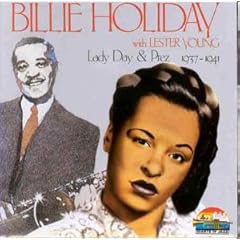
If I were to compile a list of my favorite jazz players, it probably won't overlap with a "jazz genius top ten" by much. I'll take Sonny over Trane any day, ditto Fats and Brownie over Miles, and I am only lately starting to warm up to Parker, and then probably because of overexposure than because of a true emotional connection - I must've heard his Savoy sides more times than I've heard Pink Floyd. But there is one guy that will probably top both lists, and that is Louis Armstrong. Satchmo does it for me every time.
I'll take his Hot Fives/Sevens to a desert island, no contest. There is no point in sharing them, though: there have been at least three different "complete" reissues, probably more, and all are easily available elsewhere. However, his sideman recordings are more obscure. After coming up to Chicago in 1922 to play with King Oliver and then Fletcher Henderson, Pops was very much in demand as a studio musician and accompanist. I am sure he did not mind making some dough on the side, either, so there is a wealth of his solos backing the famous and not-so-famous blues singers of the day, from Ma Rainey and Bessie Smith on down. In fact, the record execs noticed that the 78s with his solos - even uncredited - often sold better, and that gave them a bright idea to record Armstrong as a leader; the rest, as they say, is history.
Today's share is a collection of tracks with Armstrong's participation, recorded between 1924 and 1927. There are some sublime solos here; my favorites are two Bessie Smith tracks - I Ain't Gonna Play No Second Fiddle and You've Been a Good Ole Wagon; another great track, He Likes It Slow, features the whole Hot Five and so appeared as a part of the "Complete" box sets. I should warn the prospective listeners that some of this is pretty sonically crude. Hot Fives and Sevens were an all-star band and they got all the latest studio gizmos and extra attention from the recording engineers; also, we get to hear the Hot Fives and Sevens after they've been put through the marvels of modern remastering. These tracks, OTOH, have none of the above; what they often do have is a distinctive unrehearsed "let's cut it and go drinking" one-take feel - the balance is all over the place, there are stumbles and rough spots, and the instrumentation is sometimes rather skeletal, such as the vocal-cornet-harmonium trio on the St. Louis Blues. So, for all the historical interest and occasional brilliance of Satchmo's solos, these probably won't be going with me to any desert island unless I'll be taking my 500GB hard drive with me.
A very thorough Armstrong discography can be found here, refer to it for session dates, personnel and instrumentation.
Track list and links are in comments.














 Those who liked the Shanghai Lounge Divas' remixes better than the originals should check out the Shanghai Restoration Project, a neolounge/downtempo electronic project with a cross-cultural approach similar to that of Ian Widgery. A few albums can be heard
Those who liked the Shanghai Lounge Divas' remixes better than the originals should check out the Shanghai Restoration Project, a neolounge/downtempo electronic project with a cross-cultural approach similar to that of Ian Widgery. A few albums can be heard 






























